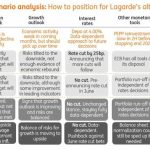A new “anti-capitalist” cafe is opening in Toronto, hoping to attract customers who share the owner’s radical leftist values. Officially called The Anarchist Cafe, the downtown coffee shop will be run as a worker-owned and operated co-op. Every employee will receive the same pay, and all business decisions will be made democratically.
“I hope by openly declaring the business as anti-capitalist I can motivate people to think and ask about what that means,” said Gabriel Sims-Fewer, the owner of the business. “I knew the world was full of radical progressives, and hoping to meet more of them was one motivation for doing what I’m doing.”
The response has been overwhelmingly positive according to Sims-Fewer. “I didn’t anticipate so much enthusiasm every day so early on,” he said.
The irony here is, of course, hard to miss. Here we have an entrepreneur starting a business, presumably with the intention of turning a profit, all in the name of sticking it to capitalism?
The irony gets worse, actually, because this is also a classic example of the great capitalist mantra that “the market always provides.” You want cars? The market will provide. You want fake wrestling? The market will provide. You want explicitly anti-market cafes? Yep, the market provides that too, apparently. So, far from highlighting capitalism’s defects, this enterprise is actually serving to highlight its strengths.
Irony aside, the question that looms over this budding venture is whether it will actually work. Of course, it’s hard to say at this stage, but there’s an indication it may run into problems.
While equal salaries for everyone and democratic management may sound nice, there’s an important question we need to ask. If it’s such a good idea, why aren’t other companies doing it? Presumably there’s a reason this isn’t already a mainstream business model.
According to the leftists, the reason this isn’t widespread is that most owners and managers are selfish and greedy. “Management” has a vested interest in keeping “labor” subjugated, we are told, and that’s why they don’t give workers more pay or decision rights.
But the idea that egalitarian business models are avoided because owners and managers don’t like them is simply inaccurate. The real reason businesses avoid more egalitarian models is because consumers don’t like them. After all, it is consumers, not owners and managers, who ultimately decide how businesses are run.
“The consumers patronize those shops in which they can buy what they want at the cheapest price,” Ludwig von Mises explains in his economic treatise Human Action. “Their buying and their abstention from buying decides who should own and run the plants and the land. They make poor people rich and rich people poor. They determine precisely what should be produced, in what quality, and in what quantities.”
When we look at a company, it seems obvious that the owners are the ones making the decisions. But as Mises explains, they are actually servants of the consumers, and they will quickly be “fired” if they don’t structure their businesses the way consumers want.
“The entrepreneurs, capitalists, and farmers have their hands tied,” Mises says. “They are bound to comply in their operations with the orders of the buying public. Every deviation from the lines prescribed by the demand of the consumers debits their account.”
But surely managers have at least some discretion, perhaps when it comes to salaries or decision rights? Not so, says Mises. “The consumers determine ultimately not only the prices of the consumers’ goods, but no less the prices of all factors of production. They determine the income of every member of the market economy. The consumers, not the entrepreneurs, pay ultimately the wages earned by every worker, the glamorous movie star as well as the charwoman [house cleaner]. With every penny spent the consumers determine the direction of all production processes and the minutest details of the organization of all business activities.”
This principle, often referred to as consumer sovereignty, really deflates the “mean manager” argument, and it also helps us understand why egalitarian business models are not more common. Consumers likely choose to pay managers and executives higher salaries than other workers because they want to attract talent to those important roles. Equal pay would be an inefficient use of resources, which is absolutely unacceptable for the shrewd consumers.
Hierarchical decision-making is also likely designed to serve consumers, because some people are better than others at judging how businesses can best serve their customers, and the consumers want those people in charge.
Now, entrepreneurs are more than welcome to try out a different business model like The Anarchist Cafe is doing. But remember, the consumers are the true boss here. If they don’t like that model—perhaps because it makes their coffee more expensive and they can buy cheaper coffee elsewhere that’s just as good—then they will quickly punish it with losses. But even if they reward the business with profits, that is simply an indication that the business has successfully catered to the values of consumers. In either case, the consumer is king.
Owners and workers can try to substitute their own preferences for those of the consumers, but if they do, they will quickly find out who’s actually the boss in a capitalist society.
This article was adapted from an issue of the FEE Daily email newsletter. Click here to sign up and get free-market news and analysis like this in your inbox every weekday.
Content syndicated from Fee.org (FEE) under Creative Commons license.
Agree/Disagree with the author(s)? Let them know in the comments below and be heard by 10’s of thousands of CDN readers!











